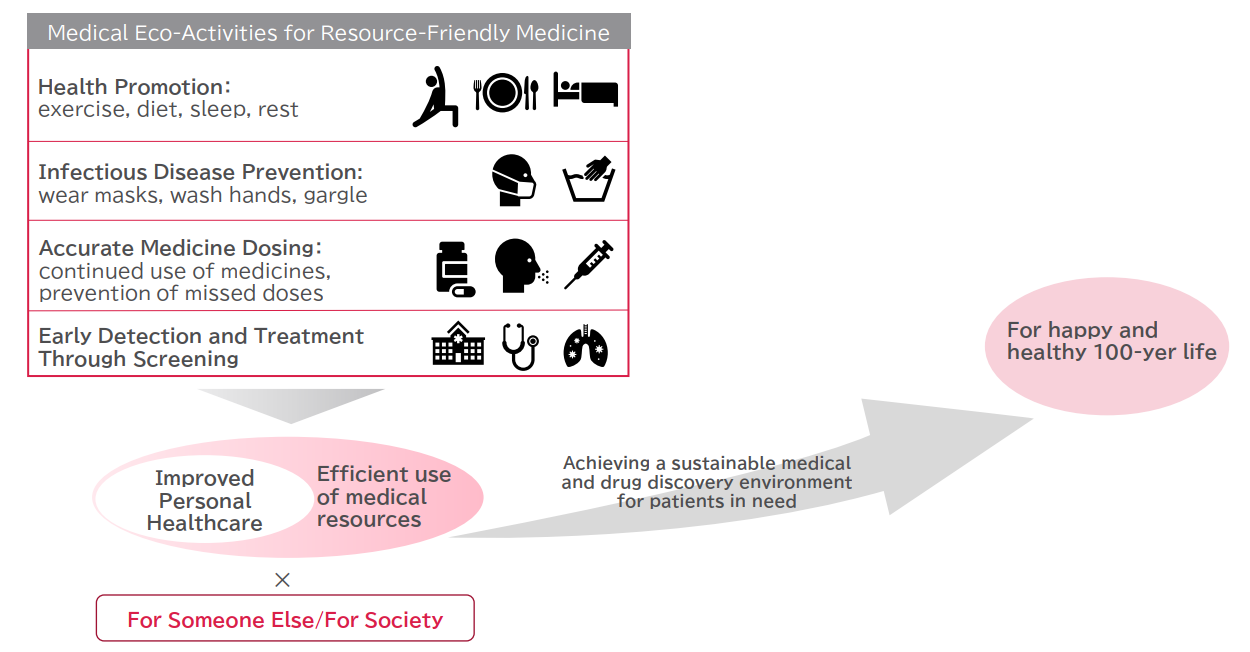What are Medical Eco-Activities?
Activities that ensure each and every individual in a country carefully utilizes medical resources (people involved in medical care, medical facilities and medicines, and financial resources) in order to provide medical services to patients in need with no treatment options in the future.
Health and medical care security should move from "something taken for granted" to "something created together.”
The medical eco-activities are the actions that each of us should take to prevent illness and stay healthy, and to use medical resources with care for severe prevention.
These activities not only improve individual healthcare, but also have social significance because they benefit others and society.
Activity policy
Astellas aims to contribute to shaping an environment that brings innovative new medicines to patients through its advocacy activity of medical eco-activities.
Japan currently faces social challenges such as low birthrates, an aging population, and increasing social security costs, which are affecting medical resources (people involved in medical care, medical facilities, medicines, and financial resources).
As the challenges to medical resources become more serious, there is concern that medical care will not be available when needed and that new medicine will not be produced.
Other concerns include decreased availability of medicines in Japan, where needed treatments do not reach the patients that need them due to lack of availability for treatment options. Approximately 70% of new medicines for cancer and other diseases developed in the U.S. and Europe are not available in Japan*.
This is an important issue for everyone in Japan, including the future generation.
Therefore, Astellas is working to realize a society in which new medical treatments and medicine are accessible to patients who need them through this comprehensive approach to educate citizens, gathering public opinion, community building.
*According to News No.66 from Office of Pharmaceutical Industry Research

